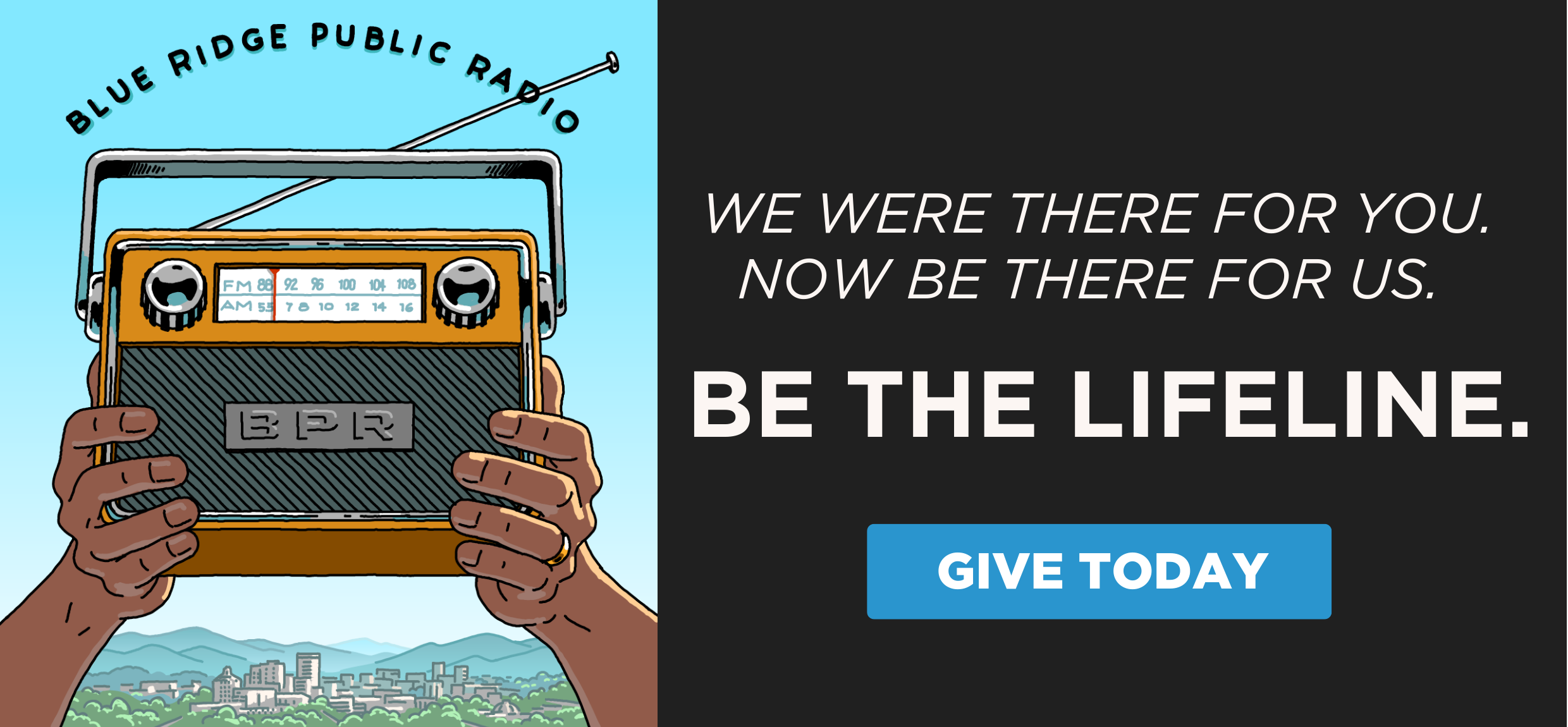Communities across Western North Carolina are preparing for a lapse in federal food benefits this weekend — a disruption expected to hit hardest in areas still recovering from Helene’s flooding and infrastructure damage.
The federal Supplemental Nutrition Assistance Program, or SNAP, helps more than 1.42 million North Carolinians buy groceries each month. But with the government shutdown continuing, the U.S. Department of Agriculture has directed states to halt November payments until Congress approves new funding.
That means starting Nov. 1, families who rely on SNAP may not receive their monthly benefits — leaving local agencies working to fill the gap.
“Any disruption to people’s ability to access food is concerning,” said David Sweat, Buncombe County’s Health and Human Services director, during a press briefing Thursday. “As our community continues to recover from Tropical Storm Helene, food insecurity has grown.”
Local response in Buncombe County
Sweat said the SNAP pause will affect about 29,000 Buncombe County residents and could ripple through the local economy — cutting an estimated $13 million in food spending next month if funding isn’t restored. He said the average benefit is about $171 per person and $344 per household each month.
Buncombe County is keeping its Economic Services offices open so residents can continue to apply for food assistance, even though benefits won’t be issued until federal funding resumes. Officials also announced a countywide food drive and expanded free community food markets to help households weather the gap.
Donations of nonperishable food can be dropped off at any Buncombe County library, and community markets will continue offering free food throughout the county each week.
Regional food banks brace for surge
Across the 16 westernmost counties, MANNA FoodBank — the region’s main food distribution hub — is preparing for an increase in need.
“SNAP is a supplemental nutrition assistance program that more than 90,000 people in our Western North Carolina region participate in,” said Jennifer Lutz, Chief Community Impact Officer at MANNA in an interview. “Our team helps neighbors apply for SNAP benefits and with the recertification process — and when those benefits run out, MANNA steps in with direct food distribution and through more than 200 partner pantries and meal sites across the region.”
Lutz said MANNA is already seeing close to 200,000 visits each month, with demand rising nearly 15% in October as families prepared for a possible pause in SNAP benefits. The organization is purchasing more essential foods such as meat, eggs, dairy and produce while reinforcing partnerships with local pantries and meal sites.
She said rural counties including Swain, Graham, Transylvania, Madison and McDowell — where 20 to 30 percent of residents receive SNAP benefits — are expected to be among the hardest hit if the pause continues.
“MANNA and our partners are built for moments like these,” Lutz said. “We’ll get through this too, but it’s going to take a community to do that.”
How to help and where to find support
Residents can continue submitting SNAP applications or recertifications through their county Department of Social Services. State officials say benefits will be issued once federal funding resumes.
For immediate food support, MANNA FoodBank’s Helpline is available by call or text at 828-299-FOOD (3663), or visit mannafoodbank.org for an interactive map of free food distributions and partner pantries across Western North Carolina.
You can also call NC 211 or visit nc211.org for updated listings of nearby food pantries, community markets, and other local assistance.
Buncombe County is partnering with MANNA FoodBank to host a food drive. Starting on Friday, Oct. 31, donations will be accepted at any County library. A full list of needed items for food drives can be found here.




